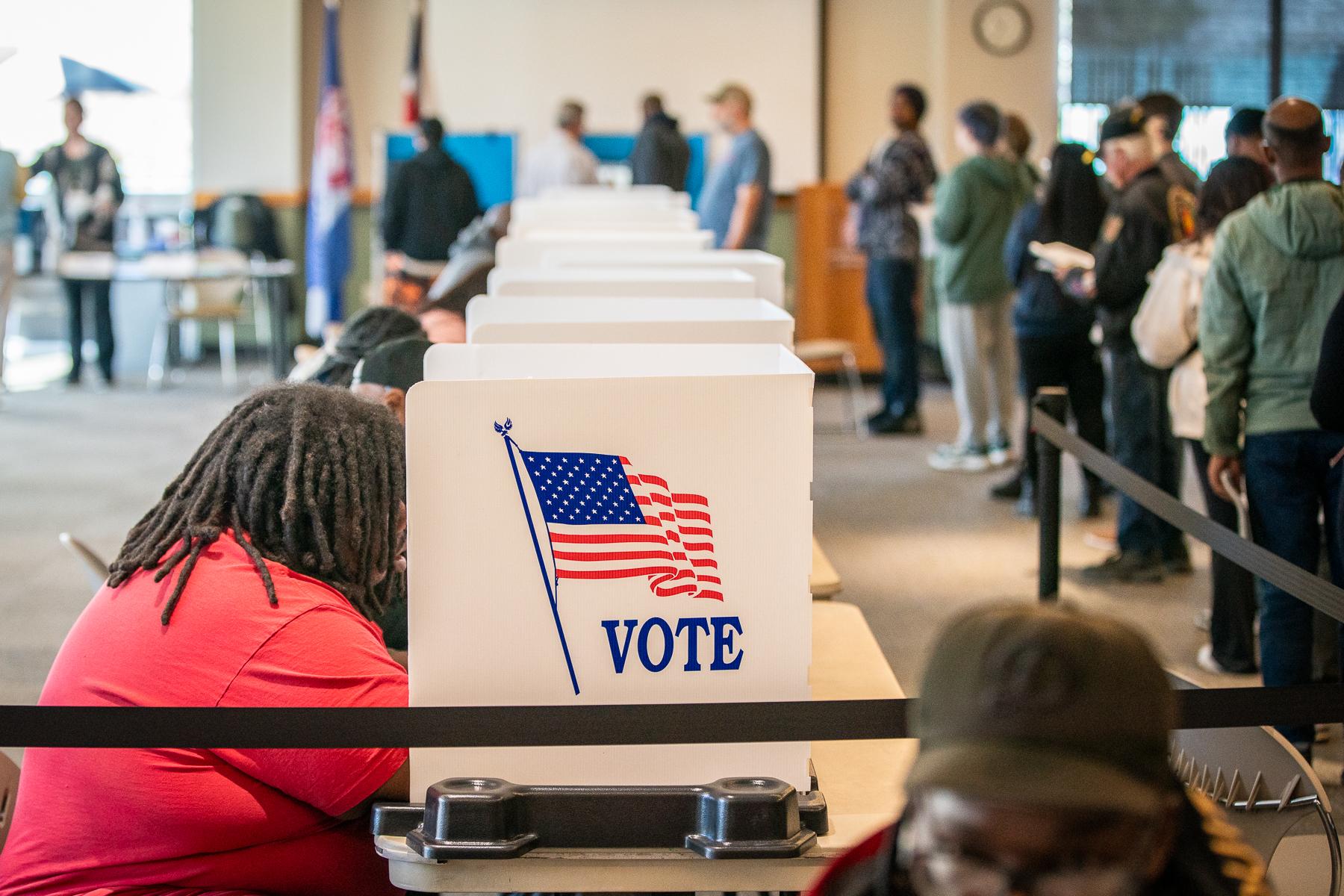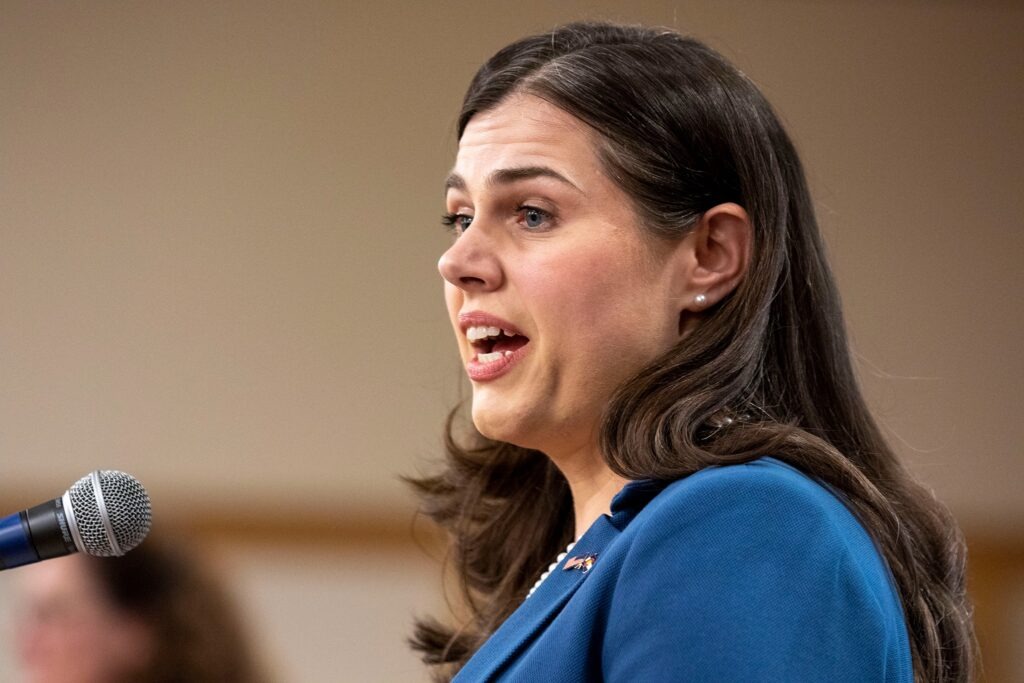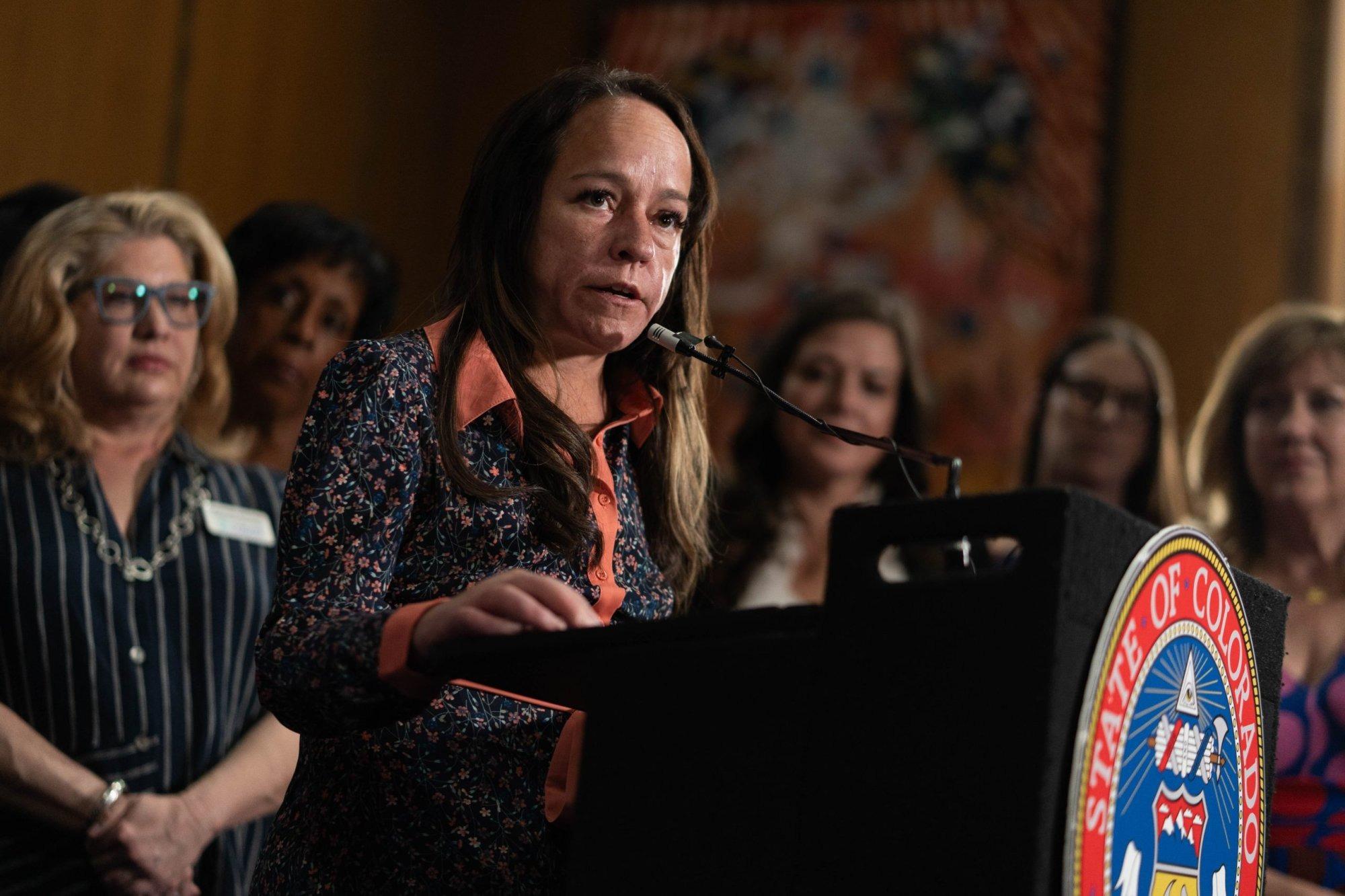
An expansive request for Colorado’s election records by the U.S. Department of Justice has leading election officials in the state wondering if the ask might be the latest chapter in the ongoing saga of a former Mesa County Clerk now incarcerated at La Vista Correctional Facility.
The letter, first reported by NPR, was sent to Colorado Secretary of State Jena Griswold in May and requested all election records relating to the state’s 2024 federal contests, under a provision of the Voting Rights Act. Griswold told Colorado Public Radio she thinks this has less to do with the events of November and more to do with October, when former Mesa County Clerk Tina Peters was sentenced to nine years incarceration for her role in allowing unauthorized access to county voting equipment.
Specifically, Griswold points to the timing of the request, which came shortly after President Donald Trump called for Peters’ release on social media.
“A week later, we received the inquiry from the DOJ. We have also seen the DOJ try to intervene in her appeals. Ultimately, we don't know if it's that, but that's where my mind instantly went,” Griswold said, adding that the letter was “sloppy” and “not something that you would expect from the United States Department of Justice.”

Peters was convicted on state charges related to allowing unauthorized access to county voting equipment while trying to prove malfeasance in election systems. Being state charges, only the Governor of Colorado has the power to pardon her, which has led to a campaign urging Jared Polis to do so.
Matt Crane, head of the Colorado Clerks Association, shares Griswold’s skepticism, both because of the timing and the unprecedented nature of the demand.
“In 25 years of working in elections in Colorado, I've never seen a request from the DOJ or heard of a request from the DOJ as expansive as what this is,” Crane said.
The request from the federal government states it was following up on a complaint that Colorado is not retaining election records in accordance with the law. The concern about record-keeping echoes a justification raised repeatedly by Peters’ attorneys throughout her multi-day trial in August — that copying machine hard drives was a way to carry out her legal responsibility to preserve election records that would otherwise be lost in a software update. Other election officials in the state have rejected that interpretation of the law.
“When you see that they received the complaint that Colorado wasn't retaining election records in compliance with federal and state law. Well, that's something that Tina (Peters) and her supporters have been claiming. We also know that the DOJ has been looking to inject itself into the Tina Peters legal matters,” Crane said. “And so just at a base level … one plus one usually equals two.”
Griswold and Crane pointed to a number of challenges with the request. For one, it included numerous typos. The letter from the DOJ refers to Colorado as a commonwealth, which it is not, and includes a request for records from 2000. Griswold said her office confirmed with the DOJ that they had intended to ask for any records preserved from the 2020 election.
The letter gave Colorado 14 days to provide the DOJ’s Civil Rights Division with “all records relating to any application, registration or other act requisite to voting” in last year’s federal election, and to certify that no records covered by those categories have been deleted or altered. It also asked for an accounting of all laws and policies the state has in place to retain records as required by federal law.
This demand for “all records” could include an enormous amount of data, Griswold said. In response to the claim, Griswold said they provided copies of the state’s master voter file, which is publicly available. To provide “all” records would involve reaching out to all 64 counties for granular data.
“To fill a request like this will take a lot of man-hours and be very expensive to the taxpayers of each county,” Crane said. “And so, will the federal government have to pay for this, or is it just something that the counties will have to, and the state … will they just be on the hook for covering the cost of fulfilling this request?”
Crane added he would advise county clerks to be in contact with their county attorneys should the request reach that level.
For her part, Griswold said she had not heard back from Justice Department officials as to whether or not the information her office provided had fulfilled the request. If they ask for more, she said her office will comply with whatever the law asks, but so far, she’s uncertain what the justice department is looking for.
“From our point of view, we provided the DOJ with records that are public and were responsive to what we think their request may be, whether this is closed or not, that's up to the DOJ,” Griswold said.









